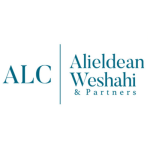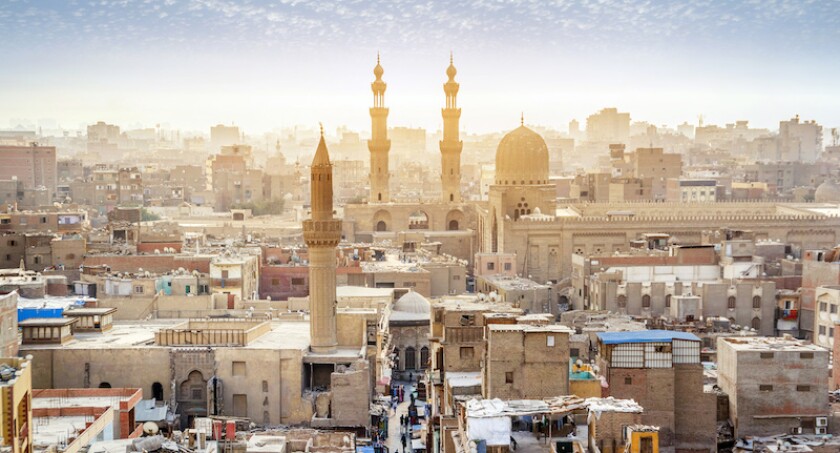For many of us in Egypt, Covid-19 was an abstraction on the horizon in early March as we were bailing out after a once-in-a-lifetime thunder-storm tore through the capital city. The streets had not yet dried out in many neighbourhoods when our reality was again transformed as curfews and RT-PCR tests for coronavirus, quarantine centres and closed borders became part of our daily lives.
With the first wave of Covid-19 now behind us in Egypt, seasoned business executives are looking for new opportunities as they guide their companies through their second global economic crisis in just over a decade. Some of the most compelling opportunities are to be found in our very young and fast-growing market for non-bank financial services (NBFS) thanks to enlightened steps taken by the regulator at the height of the crisis.
Weathering the storm
A clear and early response to Covid-19 from both policymakers and businesses has left Egypt in a strong position. Our government imposed restrictions in early March: closing borders, enforcing a nighttime curfew, and shuttering houses of worship, among many other initiatives. Nationwide quarantine centres, Covid-19 treatment facilities, and the rapid buildout of testing capacity, all helped to minimise the human toll of the virus.
In parallel, the government earmarked more than EGP 100 billion (about $6.3 billion, or approximately two percent of GDP) to shore up the health system and social safety net – and to support businesses and day labourers alike. The Central Bank of Egypt launched an unconventional EGP 20 billion programme to directly purchase securities on the Egyptian Exchange. Businesses and consumers got payment holidays on mortgages, leasing contracts, car payments and credit card debt. Companies in at-risk industries including tourism, aviation and media, got tax relief.
In parallel, business leaders managed a delicate balancing act of keeping their people safe while still delivering essential goods and services. With the last of the major lockdown measures having been relaxed on July 1 when the nation's borders reopened, the focus of executives across the nation has turned to rebuilding.
Securitisation – with a twist
Companies and investors looking for new opportunities will find them in recent decisions from Egypt's securities regulator, the Financial Regulatory Authority (FRA), which has oversight of all non-bank financial markets in Egypt.
We call the first securitisation with a twist. Securitisation has long been on the menu for companies in Egypt with securitisable assets, particularly those in real estate and automotive finance. Our firm helped create the legislation that made securitisation possible in Egypt in 2005, and we have advised on more than 35 bond issuances – most recently including the New Urban Communities Authority's in its EGP 4 billion bond, which was placed with local and foreign investors including the European Bank for Reconstruction and Development.
As the saying goes: the regulator giveth, and the regulator taketh away. NBFS companies accepted the six-month payment holiday ordered by the FRA at the height of Covid-19 – and were rewarded when the regulator offered them a new avenue to seek financing going forward.
Under a late June decision, the regulator will allow NBFS to raise funds from both institutional and – for the first time – retail investors, through a new type of transferrable value fund. These funds will be permitted to raise capital to invest in the acquisition of portfolios of assets held by consumer, mortgage and lease finance, as well as microfinance. The fund builds on a 2015 law that provided legal grounds for the creation of an Egyptian registry of movable collateral.
It's welcome news for players in an increasingly competitive industry who are looking for lower-cost alternatives to bank finance. Just days after the announcement, we filed on behalf of one of our clients to incorporate an EGP 2.5 billion transferrable value fund.
Islamic (and other) finance is now live in Egypt
While we're particularly excited about how transferable value funds could help sustainably grow Egypt's very young and fast-growing NBFS market, the opportunities don't stop there.
For generations, Islamic and corporate finance have been ephemeral creatures of the conference circuit in Egypt – much talked about, and rarely seen in the wild, even as they became staples of the global mainstream.
Thanks to Covid-19, they are now firmly on the investment menu. This spring, one of the country's larger real estate players pulled off Egypt's first corporate sukuk. Our team is now working on an EGP 2.5 billion sukuk, and we're aware of perhaps a half dozen in the pipeline. So, too, are more exotic instruments (by Middle East standards), including green bonds, where both the government and our country's largest private sector bank are preparing offerings.
However challenging 2020 has been for our community, this much is clear: in Egypt, a solid legislative base and a prudently aggressive approach to regulation are creating new avenues for growth as we look to leave this year behind.

|
Dr Bahaa Alieldean |
|

|
Dr Elham Mabrouk |



